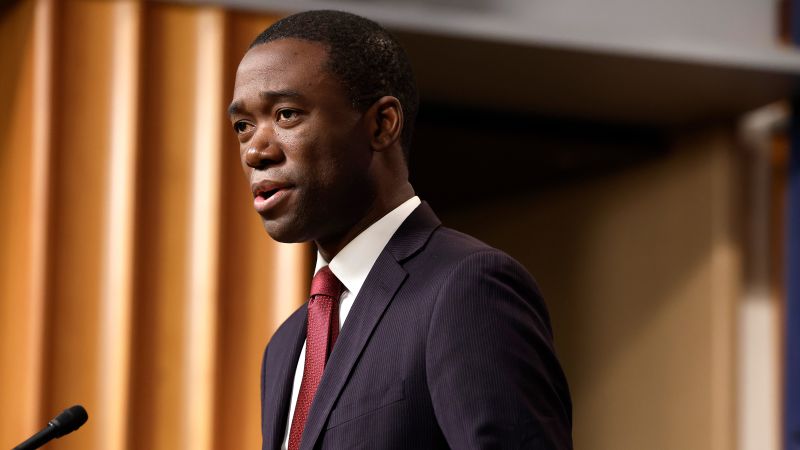A top US economic official said Sunday that talks between congressional staff and the White House have been “constructive” as the US barrels toward a debt limit deadline that could come as soon as June 1.
“The conversations are constructive between all the parties,” Deputy Treasury Secretary Wally Adeyemo told CNN’s Dana Bash on “State of the Union.”
President Joe Biden, he said, “looks forward to getting together with the leaders to talk about how we continue to make progress.” Talks between congressional leadership and Biden were canceled on Friday as staff-level talks continued, with additional meetings expected this week.
Biden, however, departs for Hiroshima, Japan, on Wednesday for the G7 summit.
There is still not a clear path forward to avoid a default with just four more days before June 1 when both the House and Senate are scheduled to be in session. But there have been changes in posturing that indicate some progress.
Adeyemo reiterated Sunday that the US “can’t” default on its debt but declined to provide details on areas of agreement. He echoed Treasury Secretary Janet Yellen’s assessment that default could happen “as early as June 1” but said it “can be sometime in early June,” calling on Congress to act as he warned that default would be “catastrophic.”
Pressed by Bash on the timing of a deal following House Speaker Kevin McCarthy’s call for an agreement in principle by early this week and business leaders like JP Morgan Chase’s Jamie Dimon warning of market panic in the absence of a deal, Adeyemo said Biden “believes we should raise the debt limit as soon as possible.”
“Because it’s not only financial markets, but the (University of Michigan) survey of consumer sentiment last week showed that consumers are now worried about the debt limit – it’s affecting the way they’re spending,” Adeyemo said.
Meanwhile, top Biden economic adviser Lael Brainard on Sunday characterized the staff-level debt ceiling talks as “serious” and “constructive.”
But she echoed previous White House comments on preferring a full increase rather than a short-term fix.
“A short-term is not a fix. It is not really addressing that core uncertainty that CEOs are talking about. It’s just really important to take default and address it, and Congress has the tools to do that,” the director of the National Economic Council said on “Face the Nation” on CBS.
Biden indicated last week that he was prepared for talks to go down to the wire.
“I’ve been involved in negotiations my whole career,” he told CNN during a trip to New York. “Some negotiations happen at the last second, some negotiations happen way ahead of time. So, we’ll see.”
Biden resurfaced last week the controversial idea of lifting the borrowing cap without Congress by invoking the 14th Amendment, which some legal experts argue gives the president the authority to order the nation’s debts to be paid regardless of the debt limit Congress sets.
But using the 14th Amendment to let the Treasury Department borrow above the debt ceiling to pay the nation’s obligations would almost certainly prompt a constitutional crisis and swift legal action.
Asked Sunday whether the administration would consider invoking the 14th Amendment in the absence of a deal with Congress, Adeyemo said, “What the president said was that he did not think the 14th Amendment would solve our problems now. The only thing that can solve our problems now is for Congress to lift the debt limit.”
Read the full article here
